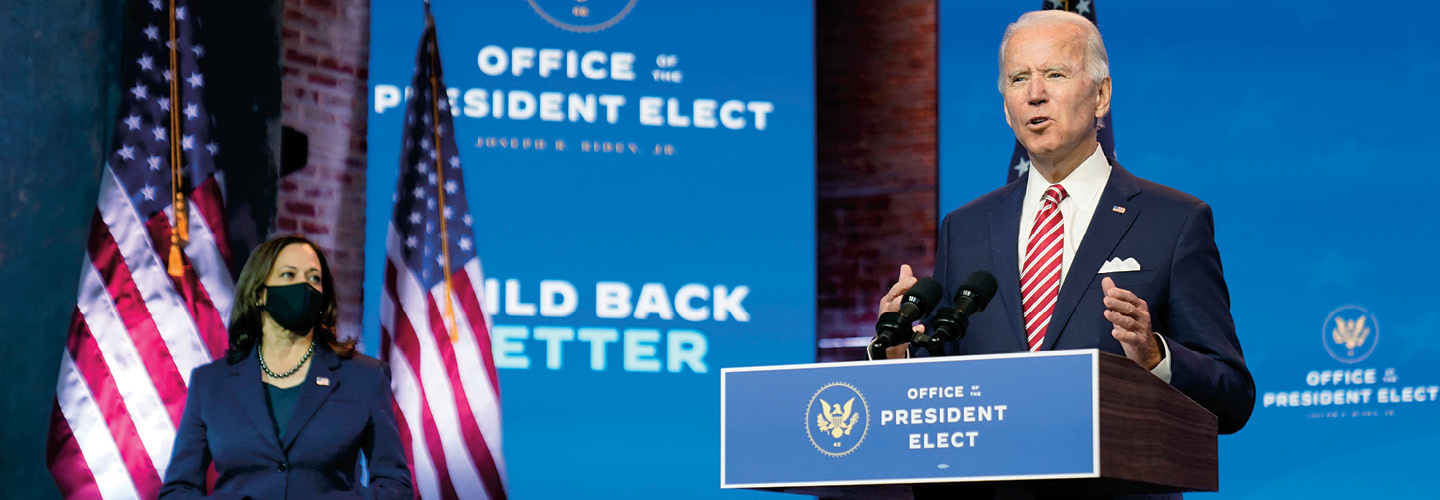On January 20, Joseph R. Biden Jr. is expected to take the oath of office and become the nation’s 46th president. After he addresses the nation, he’ll confront what is arguably the most daunting set of crises any incoming president has encountered in modern times.
The Covid-19 pandemic is surging throughout the nation, overwhelming many hospitals. Amid virus-related shutdowns, the economy is struggling to recover from the worst economic collapse since the Great Depression, with the possibility that it could still get worse. And the divide between Americans who rejoiced at Biden’s victory and those who continue to support President Trump couldn’t be more stark.
“Biden is just one human, and the amount that’s coming onto his plate as president is huge,” says Kathleen Hall Jamieson, director of the Annenberg Public Policy Center at the University of Pennsylvania.
Biden said in November that the situation demands that Americans put partisanship aside.
“We have to come together to heal the soul of this country so that we can effectively address this crisis as one country,” he said.
To be successful, political experts say, Biden will not only have to juggle everything in his in-box but also find a way to repair, or at least patch up, the divisions that threaten the ability of the federal government to function effectively. Here’s a look at six of the biggest challenges facing the next president.
On January 20, Joseph R. Biden Jr. is expected to take the oath of office and become the nation’s 46th president. On that day, he’ll address the nation. Afterward, he’ll face what is arguably the most alarming set of crises any incoming president has been up against in modern times.
The Covid-19 pandemic is surging throughout the nation, overwhelming many hospitals. Amid virus-related shutdowns, the economy is struggling to recover. Experts are calling it the worst economic collapse since the Great Depression. And there’s a possibility that it could still get worse. Beyond that, there’s a deep divide between Americans. Some rejoiced at Biden’s victory, while others continue to support President Trump.
“Biden is just one human, and the amount that’s coming onto his plate as president is huge,” says Kathleen Hall Jamieson, director of the Annenberg Public Policy Center at the University of Pennsylvania.
Biden said in November that the situation demands that Americans put politics aside.
“We have to come together to heal the soul of this country so that we can effectively address this crisis as one country,” he said.
Political experts say that for Biden to be successful, he’ll have to do two things at the same time. First, he’ll have to juggle everything in his inbox. He must also repair the divisions that threaten the ability of the federal government to function effectively. At the very least, he’ll have to patch up these rifts. Here’s a look at six of the biggest challenges facing the next president.

